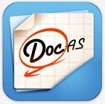#1
Robert Marzano and Debra Pickering (2010) have completed extensive research regarding a six-step process for learning and acquiring new vocabulary terms in their book, Building Academic Vocabulary: Teacher's Manual.
- The teacher provides a description of the term.
- Students restate the explanation in their own words.
- Students draw a non-linguistic representation for the term.
- Students participate in activities that help them add to their knowledge of the term.
- Students discuss the term with one another in small groups.
- Students play with the vocabulary term in games
#2
Ben Taylor incorporates cooperative learning and Kagan structures in his book, Vocabulary: Making It Memorable, to expose students to academic vocabulary in a variety of settings.
#3
The Granite School District in Salt Lake City, Utah maintains a wealth of vocabulary building ideas for all grade levels and subject areas.
The MATH-7 team will investigate vocabulary building in their next Genius Hour on January 20.
Stay tuned for more details...














.png)